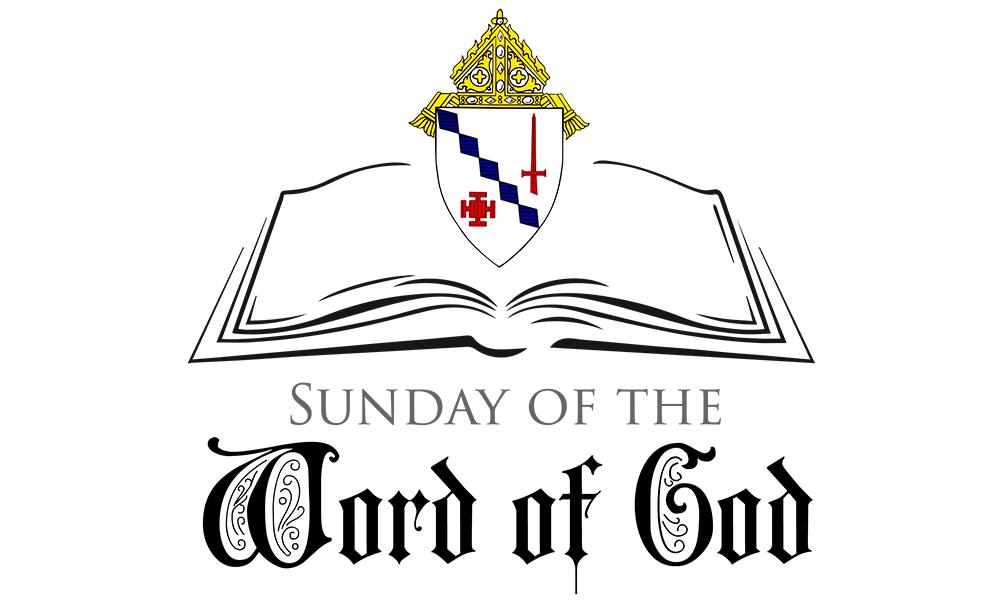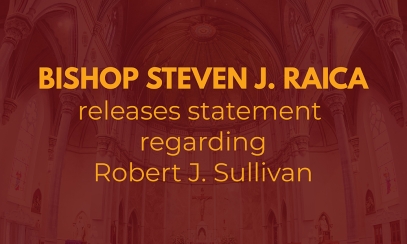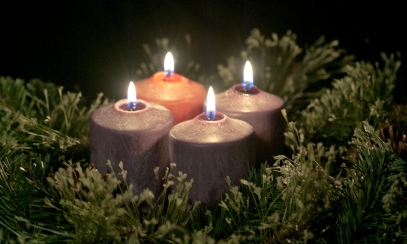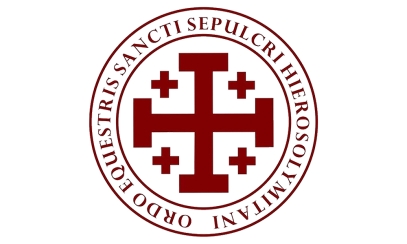
Word of God Sunday
On Jan. 23, Bishop Steven Raica celebrated Mass at the Cathedral of St. Paul. The complete text of the bishop’s homily follows herein.
On Jan. 23, Bishop Steven Raica celebrated Mass at the Cathedral of St. Paul. The complete text of the bishop’s homily follows herein.
Dear sisters and rothers, in addition to the warm welcome to all of you on this chilly day in Birmingham, I am especially grateful to so many of you who are praying for the cause of life in these days. Over 200 representatives and some of our seminarians went to Washington for the Pro-Life March. In addition to the many in our local communities who prayed a week ago for an end of abortion and gave witness to life, I join them wholeheartedly to eradicate this scourge from our nation – to make the practice unthinkable. Much work remains to be done to ensure that every human being is welcomed and cherished because each bears the indelible mark of dignity bestowed by God. Whether one is a believer or not, whether one is tiny and yet to be born or old and in decline, whether one is healthy or sick, we are human beings endowed by our creator with an ineffable dignity.
Around this time of year, we typically hear the annual speeches given by our leaders known as the “State of the State” and “State of the Union” addresses. Each outlines notable accomplishments while setting forth goals for the ensuing 12 months. Over the course of the year, we will be able to measure and quantify whether or not the goals were indeed accomplished.
The Gospel passage we have just heard proclaimed just a few moments ago may be akin to the State of the Union. It is similar to a keynote, a salutary address. Like a vision or mission statement, Jesus outlines, drawing from the words of Isaiah, the focus of His ministry, spelling out for us His purpose and goals. In it, He draws on themes already present and hoped for. He has come to bring glad tidings to the poor and the needy, freedom to prisoners, a year of favor! It is a message of mercy and hope – something that humanity has longed for since the very beginning.
As a youngster, I remember studying in school and later in religious education classes something about our relationship with God. It was put in rather simple terms for us so that in future years we would hearken back to it in our prayer and reflection. The “question and answer” format helped in recalling the answers: Who made me? Why did God make me?
These two foundational questions enable us to look at ourselves in a new way. We are not here by some freak accident of nature or mistake. There is a design and purpose, a goal and destiny for each one of us. And, in the midst of it, we are given the ultimate gift: freedom. It is not something we inherit from only our parents. It is unique to each human being by our very nature. It allows us to choose and to make appropriate judgments responding to our nature.
And so, we ask ourselves, “Who made me?” We answer, “God made me!” I did not make myself. I realize that I didn’t make myself when I open my eyes and look around me. I am something given. In fact, as I look around, I see so many things that I didn’t make but are part of my life. Somehow, I’m thrust in the middle of everything. It is there that I ask to be known and to be found. There is something outside of me that, with the cooperation of my parents, put me here at this time, in this place.
Then, we ask ourselves, “Why did God make me?” We answer, “To know Him, love Him, and serve Him in this life so that I can be with Him in the next.”
Jesus came to earth as a human being, taking on our flesh, so we can learn from Him how to do this: to know God, to love God, and to serve God in this life. But it doesn’t just stop there. The goal is stated: to be with God in the next life – the life to come. We Christians believe that our life here is an anticipation and preparation for the next life. And this next life is something that we have hints about, but our brains are too small and limited to even grasp it all. We cannot even imagine what it might be at this time, even though the letters of St. Paul give us some clues.
When Jesus began His public ministry, He invited people to join Him. You remember those words He often used, “Follow me!” In fact, people were looking for and hungering for something. Deep down, they were searching for an answer to the longings of their hearts: the Messiah. They tried many things and many approaches, but something was so unique and so special when they encountered Christ that it was like nothing they had ever experienced before. There was a fascination, an attraction like they had never felt before. They wanted to know Him. They wanted to know all about Him: to see where He lived, to listen to His words, to stay with Him. They tracked Him down because He was answering the questions they had in their hearts. He gave them hope and a purpose for living.
Unlike others, He never forced them to believe or follow Him. He appealed to their freedom and respected their dignity. He invited them, but they were always free to follow Jesus or free to leave His company. And some did just that. For those who followed Christ, the experience became the journey that would lead them to what is true, lasting, and fulfilling for them beyond anything that they had ever experienced before. Knowing Christ and having this experience of Him then becomes the standard by which we will judge everything in our lives. It is this experience of His powerful presence that we long for and that we search for. It will be a key to knowing God’s plan for me in my life.
I remember when I was in about the 5th grade when I first thought about priesthood. It was a religious sister who planted the seed, but I also saw faithful, happy priests who loved what they were doing. That inspired me not to exclude the idea of a vocation from my thought process. They had a devotion to the Lord in the Eucharist and loved the people they served. We focus a lot on the Eucharist and the power of the Eucharist. Our Liturgy, also, is a significant moment to reflect on God’s Word. So, this Sunday is designated the Word of God Sunday. It is a foundation of our faith that we hear, once again, from Sacred Scripture the story of God’s love toward His people. We hear about how our ancestors came to faith. We raise the specter of following one who can lead us beyond ourselves to a life without end. Just as Jesus refers to the prophet Isaiah for His ministry, the word I reflected upon was from the call of the Apostles in Matthew’s Gospel: “The gift you have received – give as a gift!” (Mt 10:5) Well, the rest is history. I so enjoy priesthood today that, while I think of many other possible occupations, my heart is at peace with this vocation – and with being here in the south.
The common factor I have encountered in each person I have met is the desire to reach out and know: “Who am I?” “Why am I here?” “Where am I headed?” “How can I live the life the Lord gave me to the fullest possible extent?” “Is it possible to live this way – to live for Christ?” Indeed, without asking ourselves these very basic questions, we would not be gathered here together to listen and respond to the experience of the Lord. In a very real sense, we gather together to support one another in that journey and to experience the abiding presence of the Lord once again, saying to each of us just as he said to St. Matthew, “Follow me!” It is addressed to you in whatever vocation it may be. Through our response we form one body, as St. Paul says, really Christ’s body present in our world today. Such a presence is ever present now since, in so many of our lives, we need to experience the gaze of Christ to draw us. In fact, we put along the way familiar things to remind us of the path and journey – a church building where we can gather as His people, a social hall where our community can gather for fellowship, a place with special features such as the tabernacle to maintain the presence of Jesus among us, the treasure of God’s word in the Scriptures that are read to us every time we gather, and windows that strike us that we are in a special place, a place of reverence, awe, and wonder when we hear the subtle delicate strings on the organ or the majesty of powerful reeds, a place where we can reflect on the Christian life and the virtues that guide us and encounter Christ over and over again.
In a similar way, whenever we live our lives following in faith and loyal service to the Master, we do what the Lord has done and announce the “glad tiding,” “freedom,” and “favor” from the Lord, especially to those in the peripheries of life. It is a message of hope and certainty we need in this uncertain world! May God bless your week abundantly!



